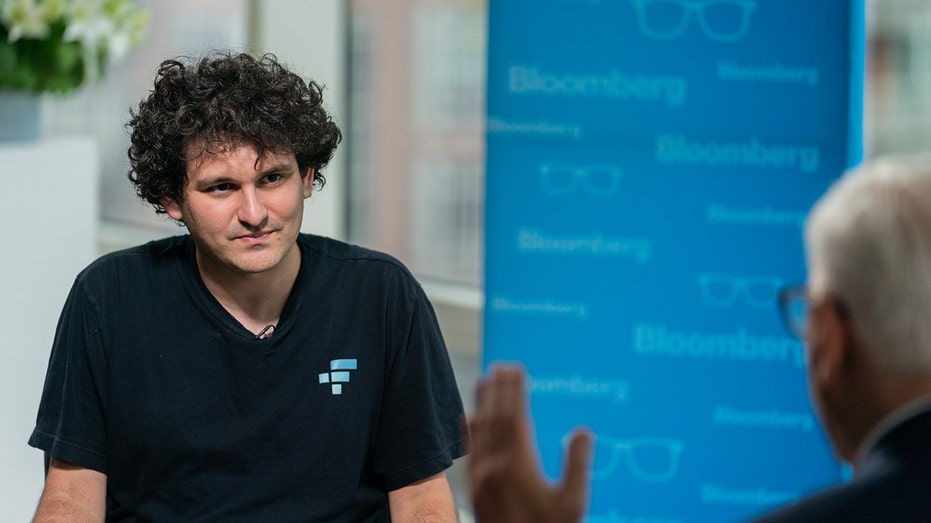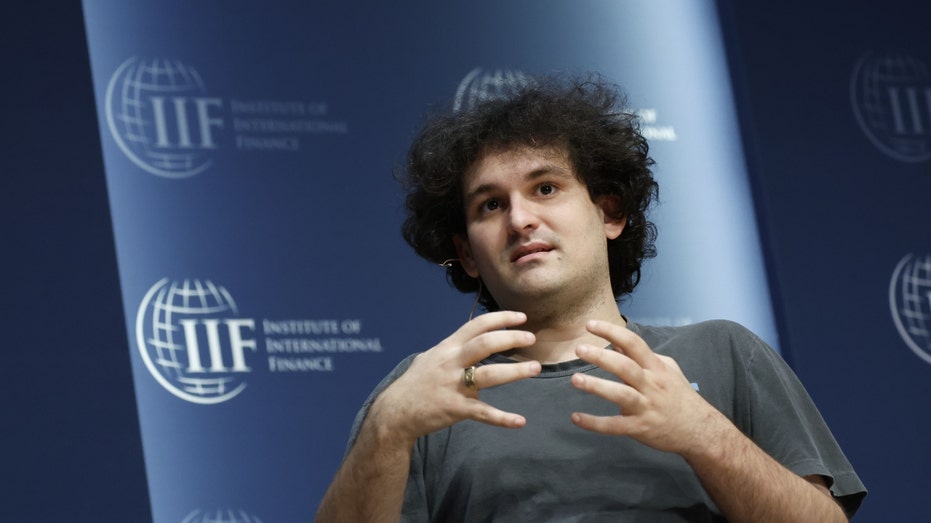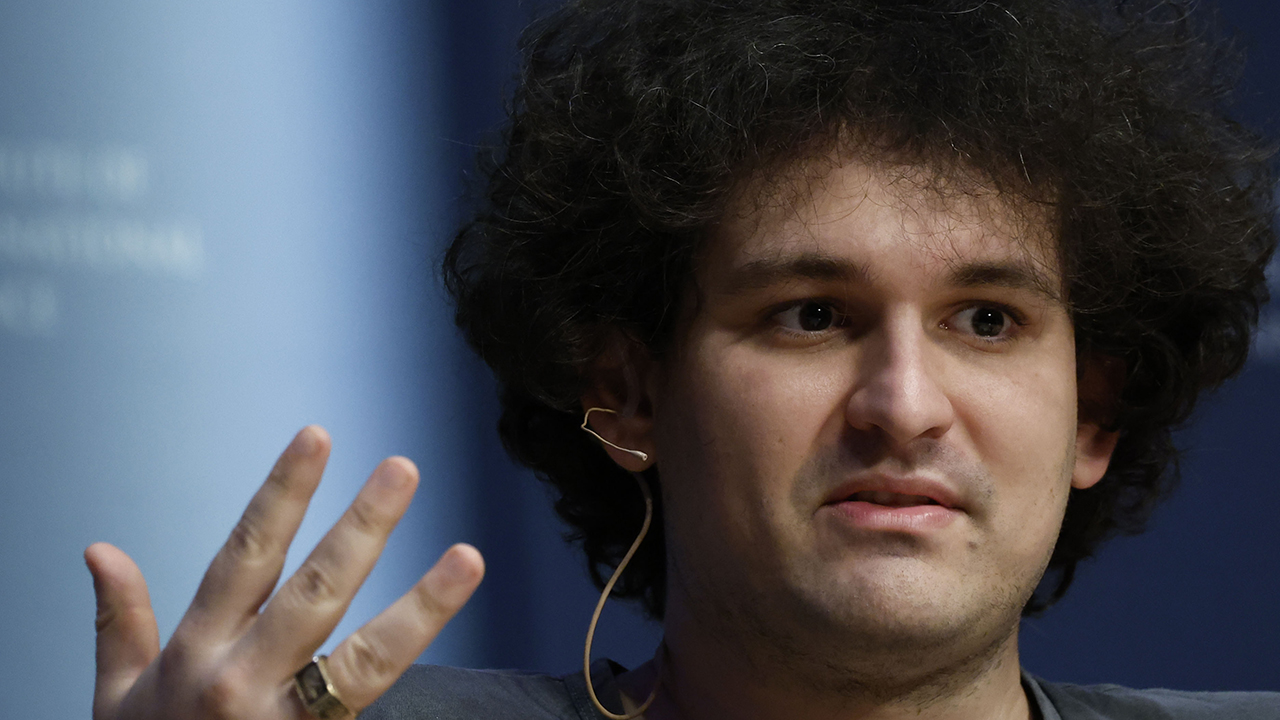Inside Sam Bankman-Fried’s $1B bet on a bitcoin miner on the Kazakh Steppe
Genesis Digital is one of the largest assets in the FTX-Alameda wreckage
Sam Bankman-Fried's case as close to 'slam-dunk' as prosecutors can get: Gregg Jarrett
Fox News legal analyst Gregg Jarrett discusses the evidence against former FTX CEO Sam Bankman-Fried and how much of the stolen money could be retrieved on 'Varney & Co.'
Just before crypto markets plunged last year, Sam Bankman-Fried‘s hedge fund made a $1 billion bet on Genesis Digital Assets, a Cyprus-registered bitcoin miner rigged to consume a small city’s worth of electricity in Kazakhstan.
The cash injection from Mr. Bankman-Fried’s Alameda Research LLC was supersized even for the red-hot crypto startup world, and it dwarfed the FTX founder’s other investments in private companies.
Genesis Digital is now one of the largest assets in the FTX bankruptcy, the product of a globe-spanning spending spree in which Mr. Bankman-Fried’s companies poured money into crypto tokens, arena branding deals and Bahamas real estate.

Sam Bankman-Fried, founder and chief executive officer of FTX Cryptocurrency Derivatives Exchange, during an interview on an episode of Bloomberg Wealth with David Rubenstein in New York, on Aug 17, 2022. (Jeenah Moon/Bloomberg via Getty Images / Getty Images)
Extracting value from Genesis Digital could prove difficult. Bitcoin-mining company valuations have plummeted. Only around half of the Alameda funds in Genesis Digital went to the company’s operations, according to Cyprus corporate-registration documents and people familiar with Genesis Digital. More than $500 million bought existing shares from two Genesis Digital co-founders, a detail that hasn’t been previously reported.
FTX CUSTOMERS FILE CLASS ACTION LAWSUIT SAYING ASSETS BELONG TO THEM
A Genesis Digital spokeswoman said that the company received money from Alameda "at market value" in the usual course of fundraising and that its founders own most of the company.
Anthony Scaramucci’s SkyBridge Capital, which invested more than $60 million in Genesis Digital, marked down the value of its stake in the bitcoin miner by 59% between its June peak and September, according to SkyBridge securities filings.

FTX founder Sam Bankman-Fried, center, is escorted from a Corrections Department van as he arrives at the Magistrate Court building for a hearing, in Nassau, Bahamas, on Dec. 21, 2022. (AP Photo/Rebecca Blackwell / AP Newsroom)
A SkyBridge spokeswoman declined to comment.
FTX collapsed in November and Mr. Bankman-Fried pleaded not guilty to charges earlier this month in federal court. Prosecutors allege that he defrauded investors and siphoned billions of dollars of FTX customer cash into his hedge fund. FTX’s new management is sorting through precisely where all the cash went.
A key chunk of what remains for FTX and Alameda creditors to pick over are scores of investments in startups such as Genesis Digital. FTX, Alameda and other entities controlled by Mr. Bankman-Fried put more than $5 billion into more than 150 startups, as well as venture firms like Sequoia Capital, according to Alameda company documents viewed by The Wall Street Journal.
Many of those investments were concentrated in the crypto sector itself, adding to the challenges of recovering money in the bankruptcy.
US PROBES HOW $370 MILLION VANISHED IN HACK AFTER FTX BANKRUPTCY
"It’s a very trying time for the crypto sector, and what I worry about is the impairment to that portfolio of $5 billion because obviously that’s a recovery pool for our customers," John J. Ray III, FTX’s new CEO, told a U.S. House committee last month. "Many of those investments are likely troubled."
Thomas Braziel, an investor who buys claims from creditors in bankruptcies, said he expects creditors will eventually get between 20% and 60% of their money back, though years into the future. Given that the venture portfolio was heavily invested in crypto, it is unlikely to contribute much to that total, he said.
As one of the world’s largest bitcoin miners, Genesis Digital is tethered to the crypto market.

Sam Bankman-Fried, founder and chief executive officer of FTX Cryptocurrency Derivatives Exchange, speaks during the Institute of International Finance (IIF) annual membership meeting in Washington, D.C., on Oct. 13, 2022. (Photographer: Ting Shen/Bloomberg via Getty Images / Getty Images)
Bitcoin mining works like this: Miners process transactions on the network—solving complex equations in a process that rewards them in newly created bitcoin. In the early days of crypto, most of the digital number crunching was done on home computers, before an industry formed of massive, energy-sucking data centers looking to process bitcoin transactions at scale.
When bitcoin prices jumped in 2021, the valuations of large miners surged into the billions of dollars. Given that these companies’ end product is bitcoin, their share prices tend to soar when prices rise and plummet when they fall. With bitcoin down over 70% from peak, shares of many publicly traded miners are down between 70% and 99% in the past year; the largest, Core Scientific Inc., filed for bankruptcy protection last month.
CRYPTO HAD A VOLATILE YEAR WITH PLUMMETING PRICES AND EXCHANGES COLLAPSING. WHAT'S NEXT?
Adding to the challenges is that the price of electricity—a top expense for bitcoin miners—is up sharply.
Genesis Digital got its start in 2017 when a duo of German bitcoin miners joined forces with a trio of Kazakh entrepreneurs. Their plan was to set up bitcoin-mining data centers in Kazakhstan, taking advantage of its relatively cheap, coal-fueled electricity, company executives have said in video interviews posted online.
The German co-founders, Marco Streng and Marco Krohn, came with several years of bitcoin-mining experience, while the Kazakh businessmen had local ties and a background in commodities.
"We brought our expertise and they brought the technical know-how," Abdumalik Mirakhmedov, one of the Kazakhstan-based co-founders and its former chairman, said in a Genesis Digital video in 2021, referring to the German co-founders.
Mr. Mirakhmedov was interested in business from an early age, and sold ice cream machines when he was 14, he said in the video. After college, he dove into the commodities market and owned a company in a partnership with commodities giant Trafigura Group.
BITCOIN BUBBLE RESEARCHER SEES SHORT TERM PRICE STABILITY
Another co-founder, Rashit Makhat, had served on the boards of companies owned in part by the Kazakh government, including Kcell, a large telecom firm, according to the companies.
With access to cheap power in Kazakhstan, Genesis Digital marketed itself as a low-cost provider of bitcoin—one that was able to grow large by building and running its own data centers.
In mid-2021, Mr. Bankman-Fried directed more than $100 million into the company from Alameda, the crypto hedge fund in which he had a 90% stake, according to the company documents. Mr. Bankman-Fried joined the board of Genesis Digital in October 2021.
Mr. Bankman-Fried met the Central Asian country’s president with a group of other foreign investors in December 2021. Around a circular table in the presidential palace—an ornate building that looks like a postmodern White House crowned with a blue Fabergé egg—he urged support for bitcoin mining, among other topics. President Kassym-Jomart Tokayev responded with skepticism, citing its high energy use, people familiar with the meeting said.
As Genesis Digital grew and bitcoin prices soared, Mr. Bankman-Fried’s appetite increased. Early in 2022, Alameda invested $550 million in the company. It was part of an investment round that totaled $670 million, according to the people familiar with Genesis Digital.
The proceeds went solely toward buying shares from two co-founders, Messrs. Krohn and Makhat, according to those people and Cyprus corporate records. Records show 70% of the shares transferred from the founders to the investors were from Mr. Makhat. Both men remain company shareholders, according to the corporate records.
The so-called secondary sale, in which founders or early investors sell some of their shares to other private investors, was large by industry standards, although the practice increased in popularity as the market for startups grew frenzied in 2021.
John Deaton on FTX scandal: I have faith Sam Bankman-Fried will see justice
CryptoLaw founder gives his take on disgraced FTX founder Sam Bankman-Fried pleading not guilty to all counts on 'Making Money.'
Months later, Alameda put in another $500 million. This time it was for newly issued shares, and the money would go toward expanding Genesis Digital’s operations. In total, Mr. Bankman-Fried’s hedge fund invested more than $1.1 billion, according to the Alameda company documents. That gave Alameda a 20% stake, according to Cyprus registration records.
Genesis Digital in a statement to Kazakh media in June highlighted the "serious compliance procedures" at Mr. Bankman-Fried’s operations.
Mr. Bankman-Fried told other investors he liked companies such as Genesis Digital because they were a different way to bet on the future of bitcoin, according to people familiar with the matter.
And bitcoin miners liked Kazakhstan, especially after China banned most bitcoin mining.
In mid-2021, the former Soviet republic was estimated to be home to nearly a fifth of the world’s bitcoin mining, according to Cambridge Bitcoin Electricity Consumption Index, a tool developed by a research center at the University of Cambridge. Genesis Digital had 280 megawatts of installed capacity, according to information the company provided to the Kazakh government, equivalent to the consumption of roughly 100,000 U.S. homes. The company told local media in mid-2022 that Kazakhstan accounted for as much as a quarter of its business.
More recently, the local government has grown wary of the strain the crypto industry places on the electricity grid and has cut off power to some miners. It also increased the tariff on electricity use for crypto miners starting this month by more than 20 times, said Janibek Mukhamejanov, a director in the country’s Digital Development and Innovations Ministry.
CLICK HERE TO GET THE FOX BUSINESS APP
Genesis Digital’s investors urged a faster pivot away from Kazakhstan than the company had previously planned, according to company investors. Some of the money it got from Alameda has gone into new data centers in Texas and South Carolina. Most of its mining now takes place in the U.S., the company investors said.
Mr. Bankman-Fried resigned from Genesis Digital’s board on Nov. 10 amid pressure from his fellow investors, according to some of the people familiar with Genesis Digital. FTX filed for bankruptcy protection the following day.
—Caitlin Ostroff contributed to this article.





















